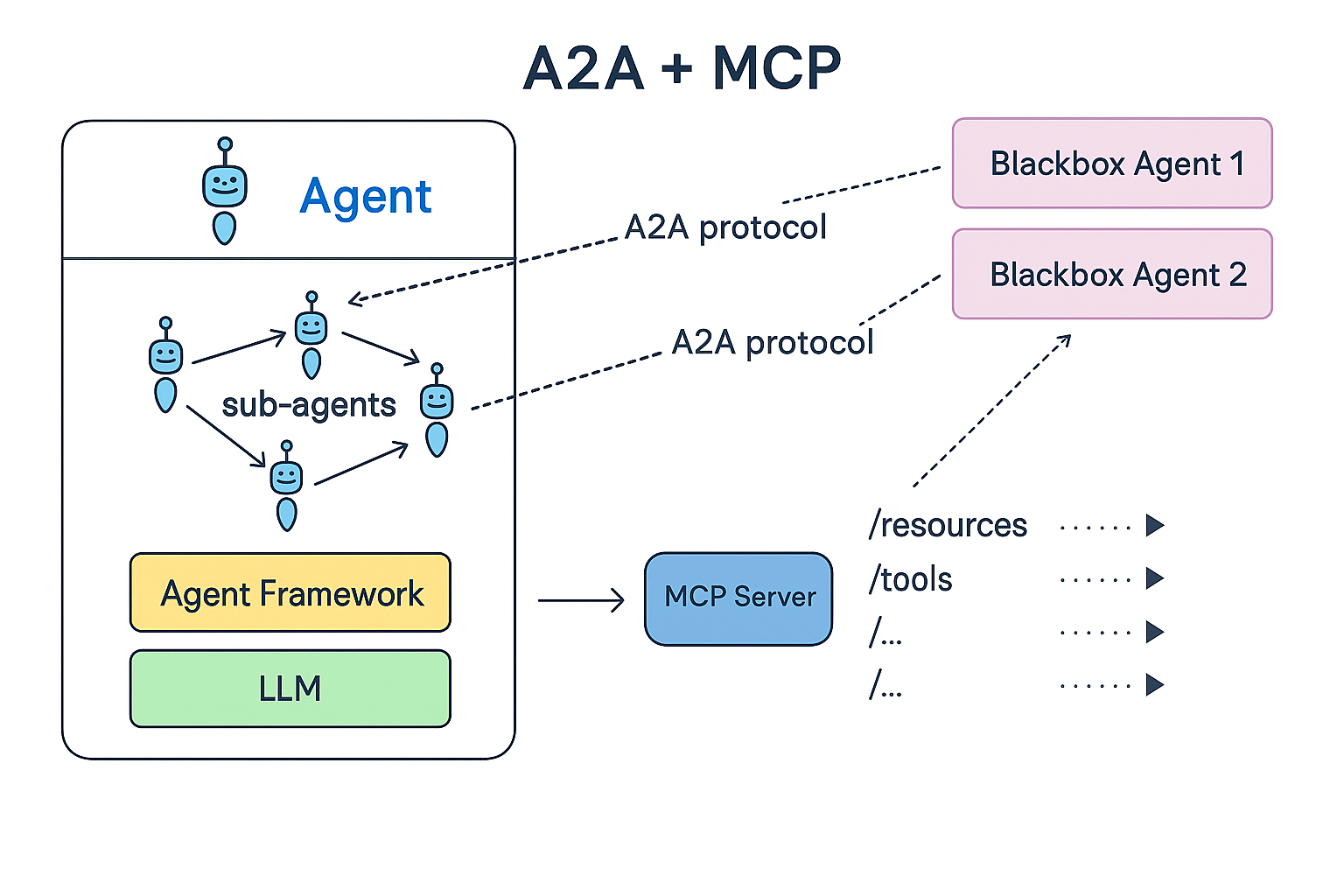Modern AI is evolving from isolated chatbots into interconnected agentic systems. Yet, these agents often operate in silos, lacking shared memory and a standard method to communicate or access data. Enter two groundbreaking protocols: Anthropic’s Model Context Protocol (MCP) and Google’s Agent-to-Agent (A2A). Together, they aim to unify the way AI agents access information and coordinate tasks—much like TCP/IP and HTTP did for the early internet.
What Is MCP? A “USB-C” for AI Context
MCP, open-sourced by Anthropic in November 2024, is a simple client-server protocol that standardizes how AI agents access data and tools. It allows agents to plug into various sources—like databases, file systems, or APIs—without custom integration code. Think of it as a “USB-C” port for AI that connects models to live, up-to-date context.
Each MCP server wraps a tool or data source and exposes it to an AI host (such as Claude or an IDE plugin) using JSON-RPC. Agents can perform two-way interactions, calling functions or retrieving resources securely, while context persists across tools and sessions.
- Standardized Access: One API format across diverse sources (Git, Slack, Google Drive, etc.)
- Two-Way Comms: Agents can fetch data or trigger tool functions
- Secure and Local: Hosts control what’s shared; data stays private
- Ecosystem Ready: Tools like Replit, Sourcegraph, Block, and Apollo already support MCP

A2A: A Protocol for Agent-to-Agent Collaboration
Introduced by Google in April 2025, A2A is an open protocol for secure, structured agent-to-agent communication. It lets AI agents discover, negotiate, and delegate tasks to each other across frameworks and organizations.
- Peer-to-Peer: Agents operate autonomously, not as sub-functions
- Standard Web Tech: Built on HTTP, JSON-RPC, Server-Sent Events
- Secure-by-Design: Includes authentication, permissions, and signed messages
- Long-Running Tasks: Agents handle both real-time and extended workflows
- Discovery & Negotiation: Agents publish capabilities via “Agent Cards”

MCP + A2A: A New AI Infrastructure
MCP provides context access, A2A handles collaboration—together they create a robust, scalable agent ecosystem. Developers can mix and match agents and data sources, enabling:
- Interoperability: Agents and tools from different vendors work together
- Scalability: Easily add or swap components like CRM agents or new data connectors
- Resilience: Systems don’t break if one part fails
- Orchestration: “Manager” agents coordinate multi-agent workflows

Implications: Toward Agentic AI Systems
- Multi-Agent Collaboration: Specialized agents can delegate and negotiate roles dynamically
- Persistent Shared Memory: Agents remember user interactions and pass that context to others
- Adaptive Task Routing: Agents auto-discover and assign jobs to capable peers
- Composable Agent Apps: Developers build agents like Lego blocks using standard connectors
MCP and A2A signal the next evolution in AI: from isolated apps to collaborative, memory-enabled, and modular agent systems. As open standards with growing community support, they lay the foundation for scalable, intelligent automation across industries.